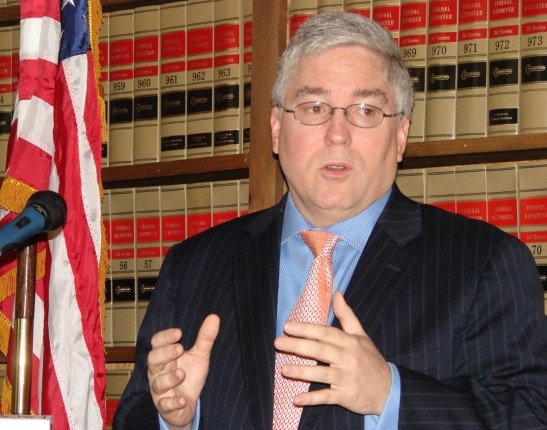CHARLESTON, W.Va. — West Virginia Attorney General Patrick Morrisey and Louisiana Attorney General Jeff Landry filed a court brief Friday supporting President Donald Trump’s executive order regarding sanctuary cities.
The January 25 order would make cities who refuse to comply with the law ineligible to receive federal funding except when deemed necessary for law enforcement purposes.
A U.S. district court judge in California ruled a preliminary injunction in two lawsuits, temporarily blocking the order nationwide.
“The defunding provision is entirely inconsistent with law in its stated purpose and directives because it instructs the (U.S.) Attorney General and the Secretary (of Homeland Security) to do something that only Congress has the authority to do–place new conditions on federal funds,” federal district court Judge William Orrick said on April 25.
The brief represents Morrisey and Landry’s respective states, as well as Alabama, Arkansas, Michigan, Nevada, Ohio, Oklahoma, South Carolina and Texas.
The brief was filed in support of the federal government’s motion to dismiss three total lawsuits against the action. The city and county of San Francisco; the county of Santa Clara, California; and Richmond, California have filed lawsuits in the northern California District Court.
“Sanctuary jurisdictions … undermine the rule of law and deprive law enforcement of the tools necessary for effective civil and criminal enforcement,” the attorneys general said.
One sanctuary city mentioned was Baltimore, which according to Morrisey and Landry has become the source of illegal drugs used by people in West Virginia’s Eastern Panhandle.
“Sanctuary policies deprive law enforcement in Baltimore and similar jurisdictions of important tools that could assist with preventing out-of-state drug trafficking,” they argued.
Another reason the attorneys general noted was the role of states in ensuring the separation of powers between various governments.
Two cities in Massachusetts — Chelsea and Lawrence — and Seattle have filed lawsuits in separate district courts regarding the executive order. According to 2010 statistics from the U.S. Census Bureau, 62 percent of Chelsea’s population and 74 percent of Lawrence’s population identified as Hispanic or Latino. Seattle’s population is less than 7 percent Hispanic or Latino as reported by the bureau.

